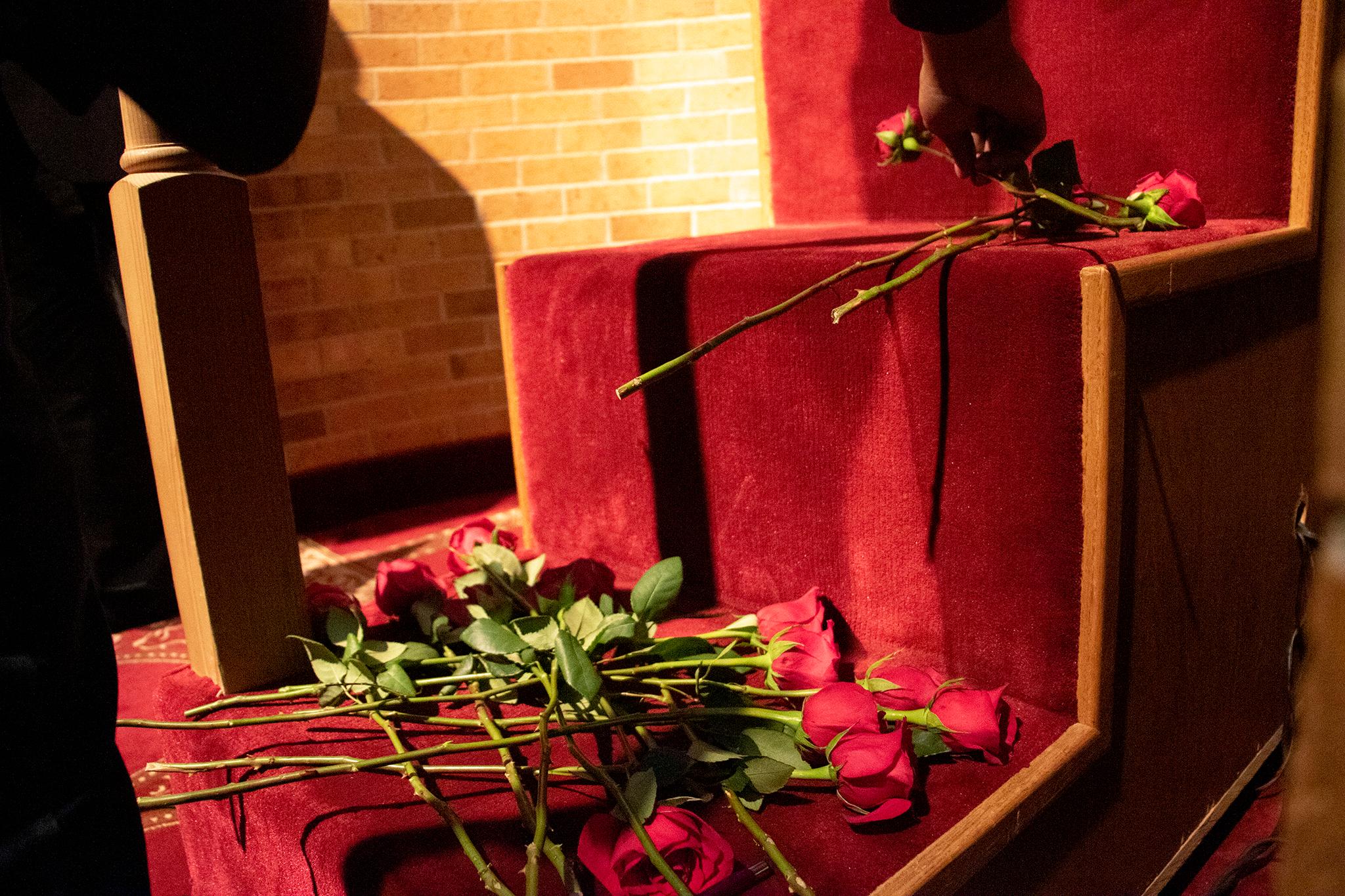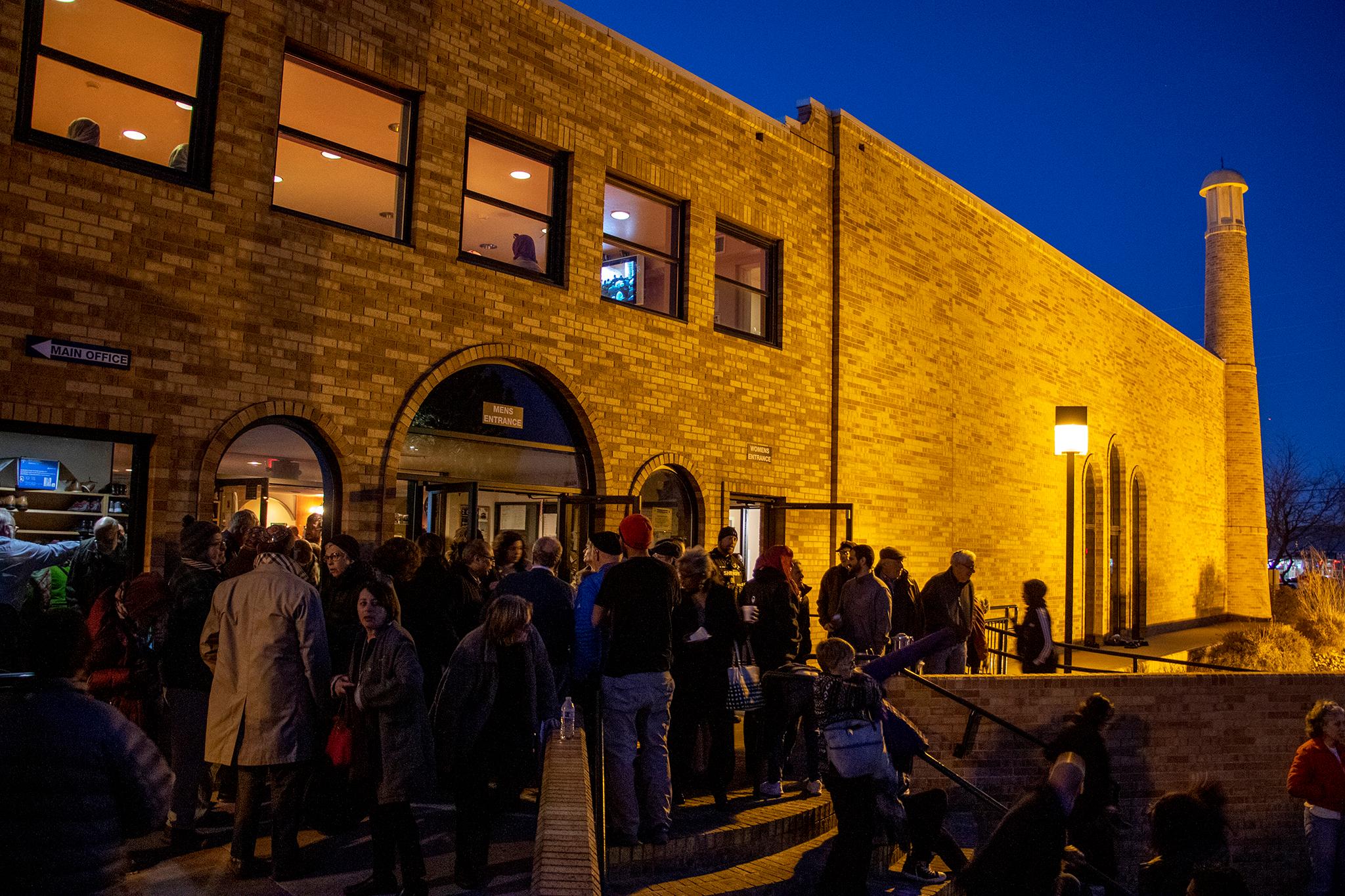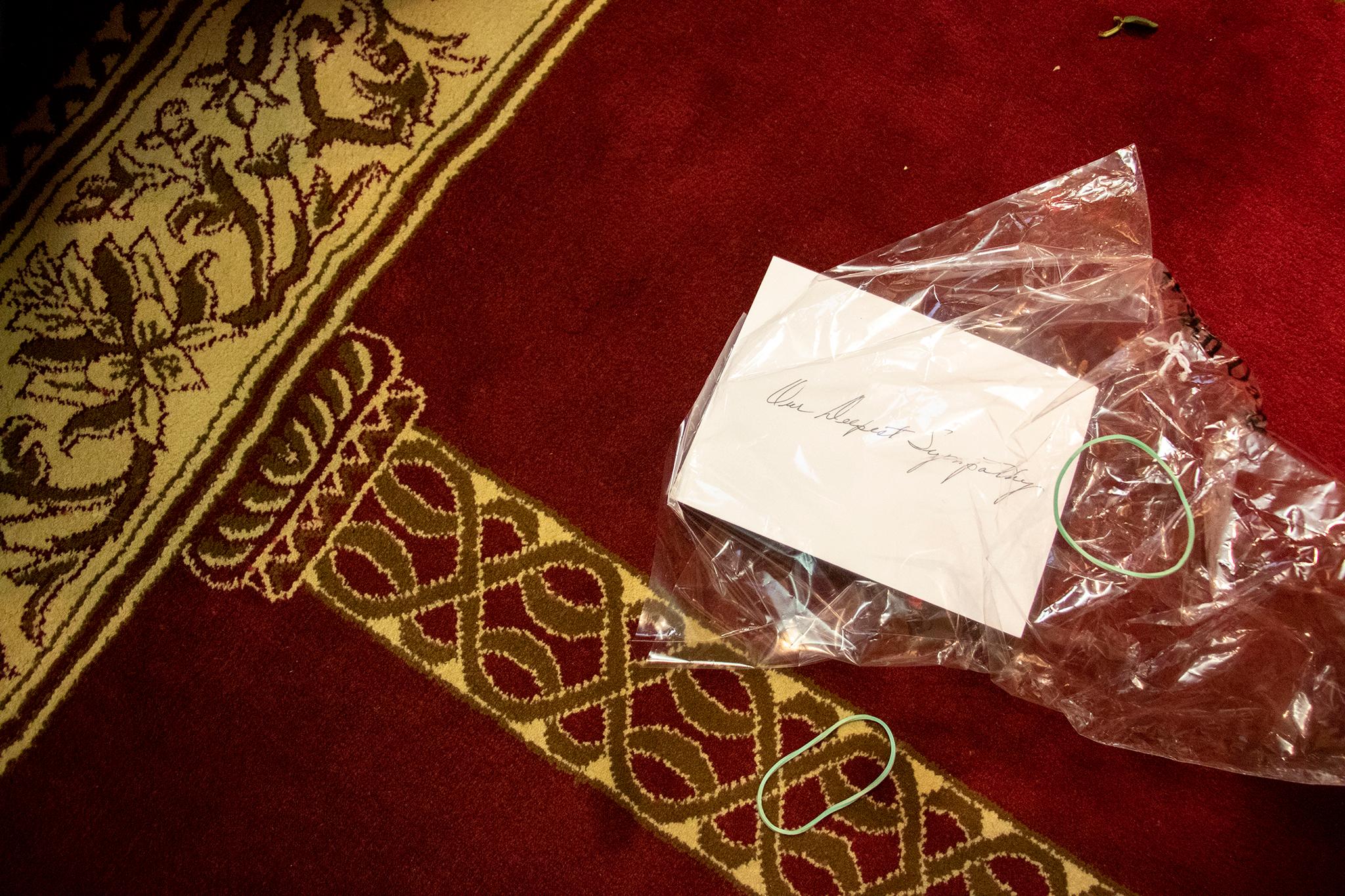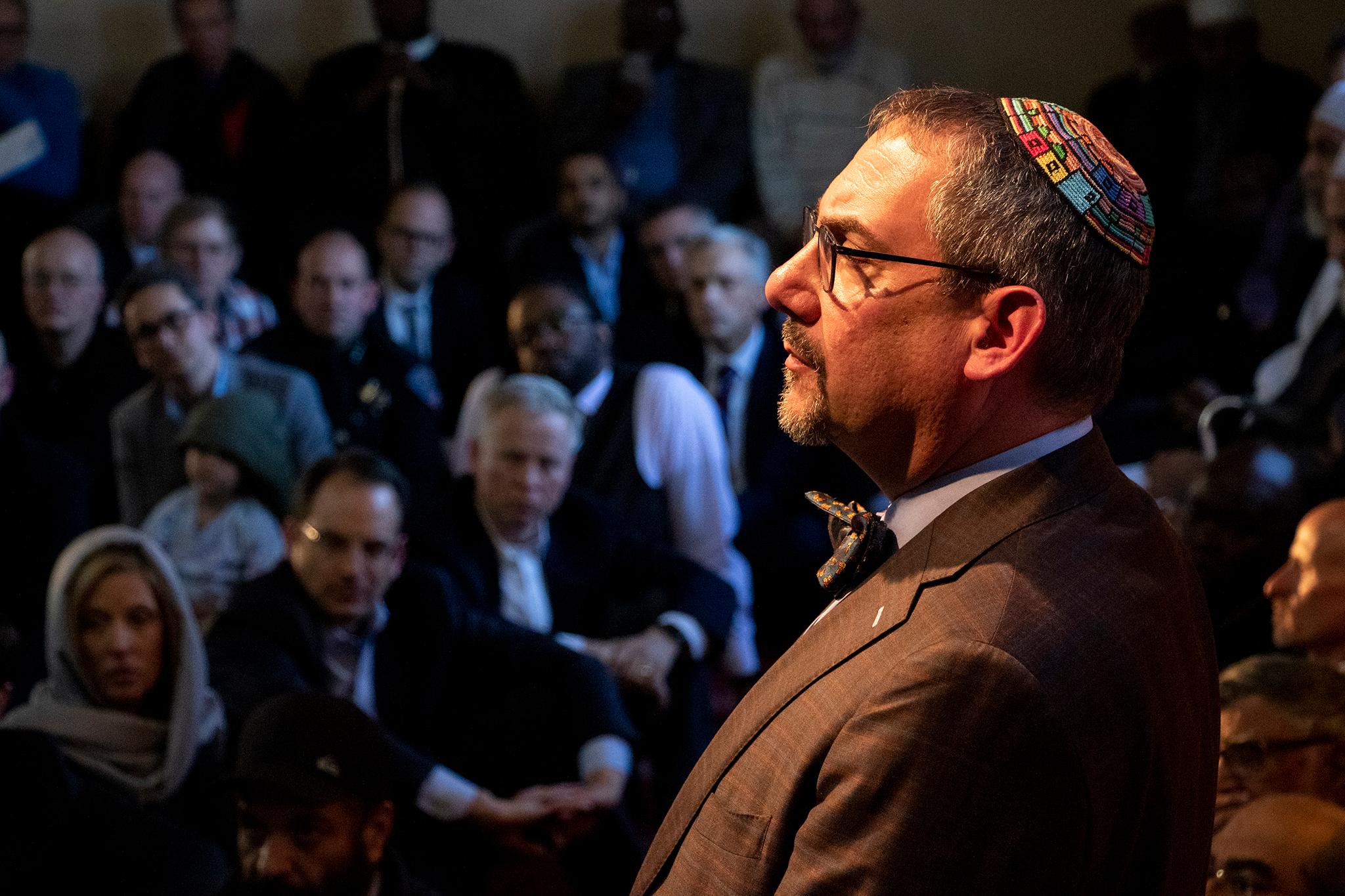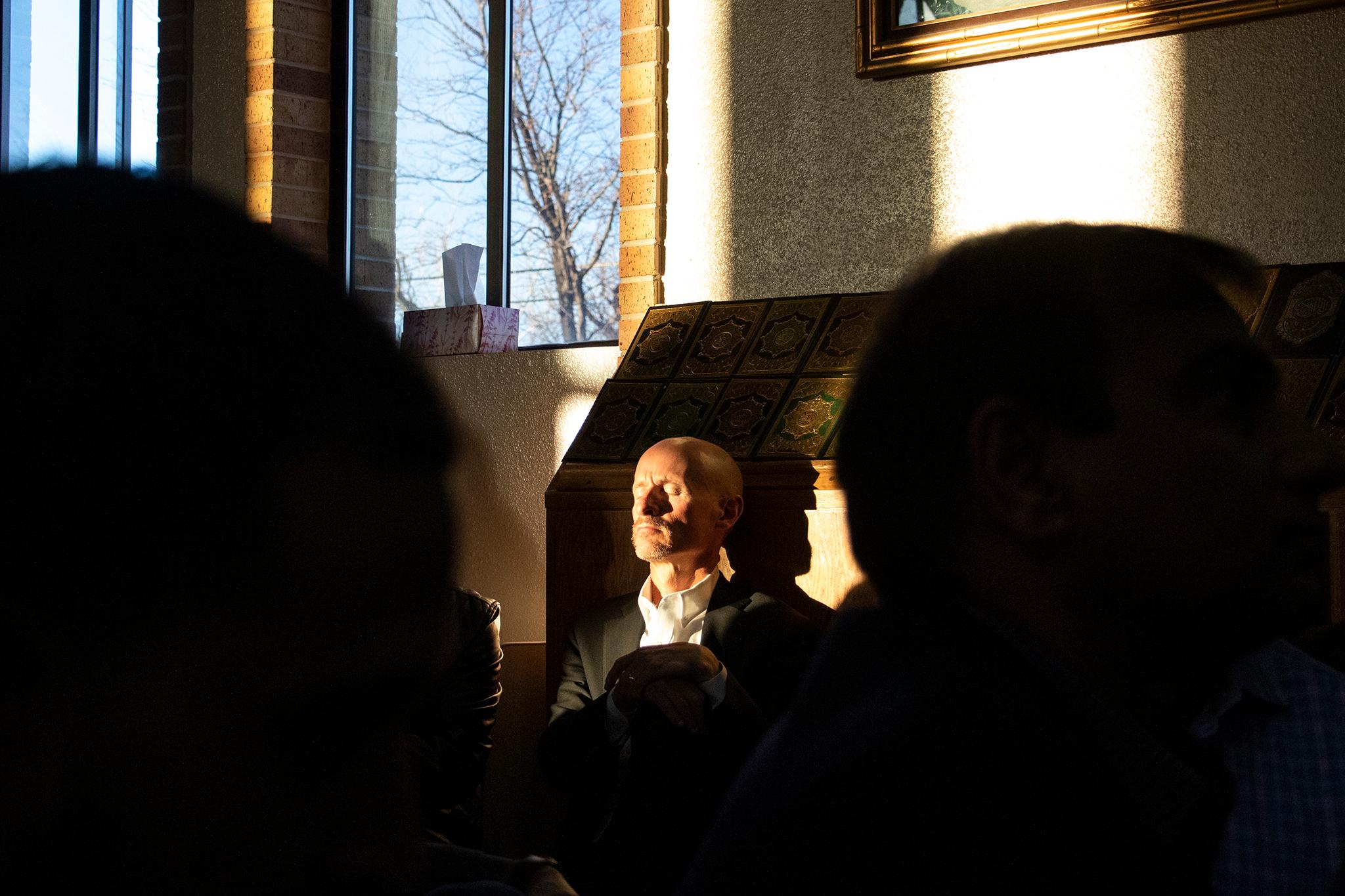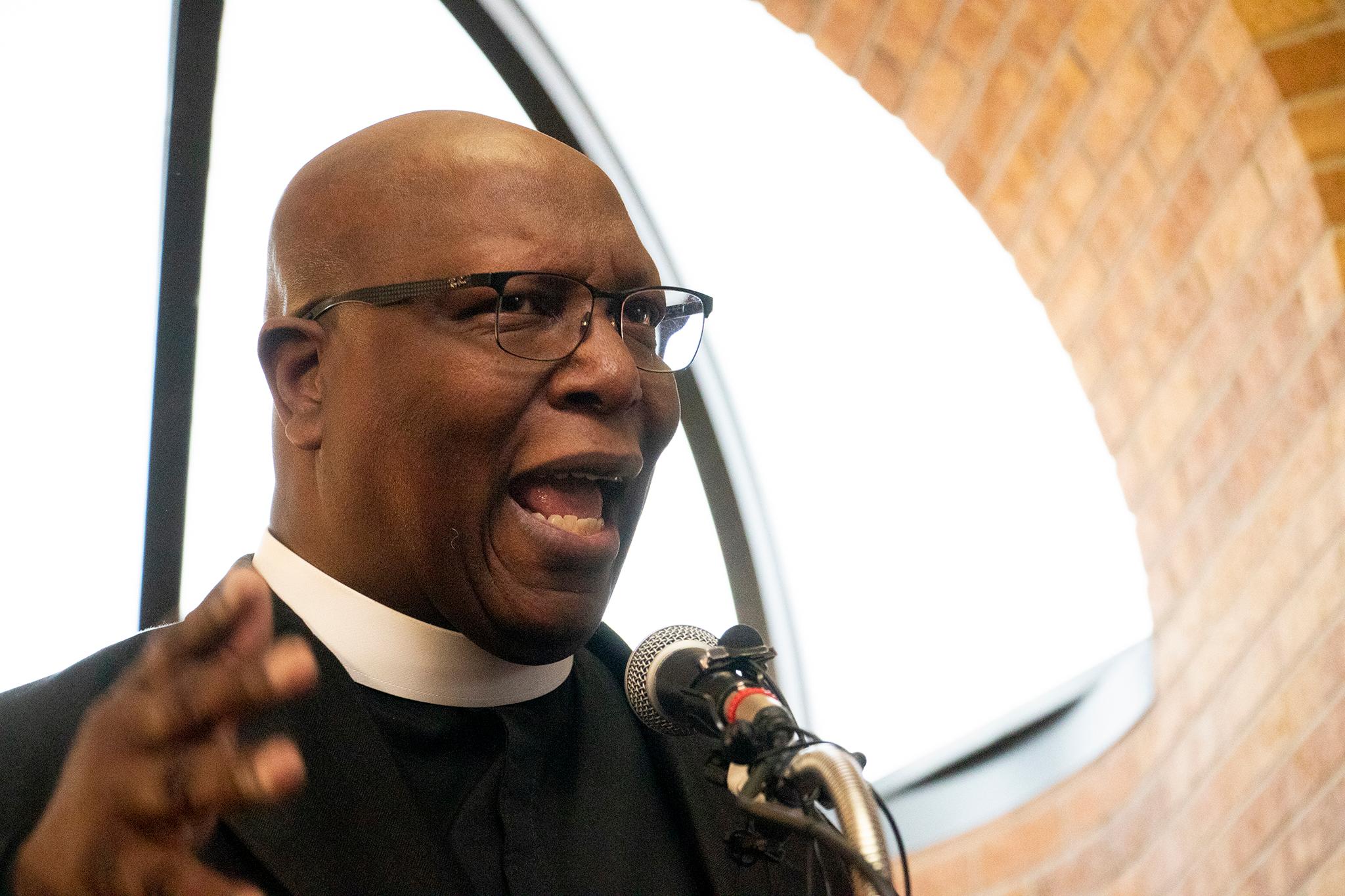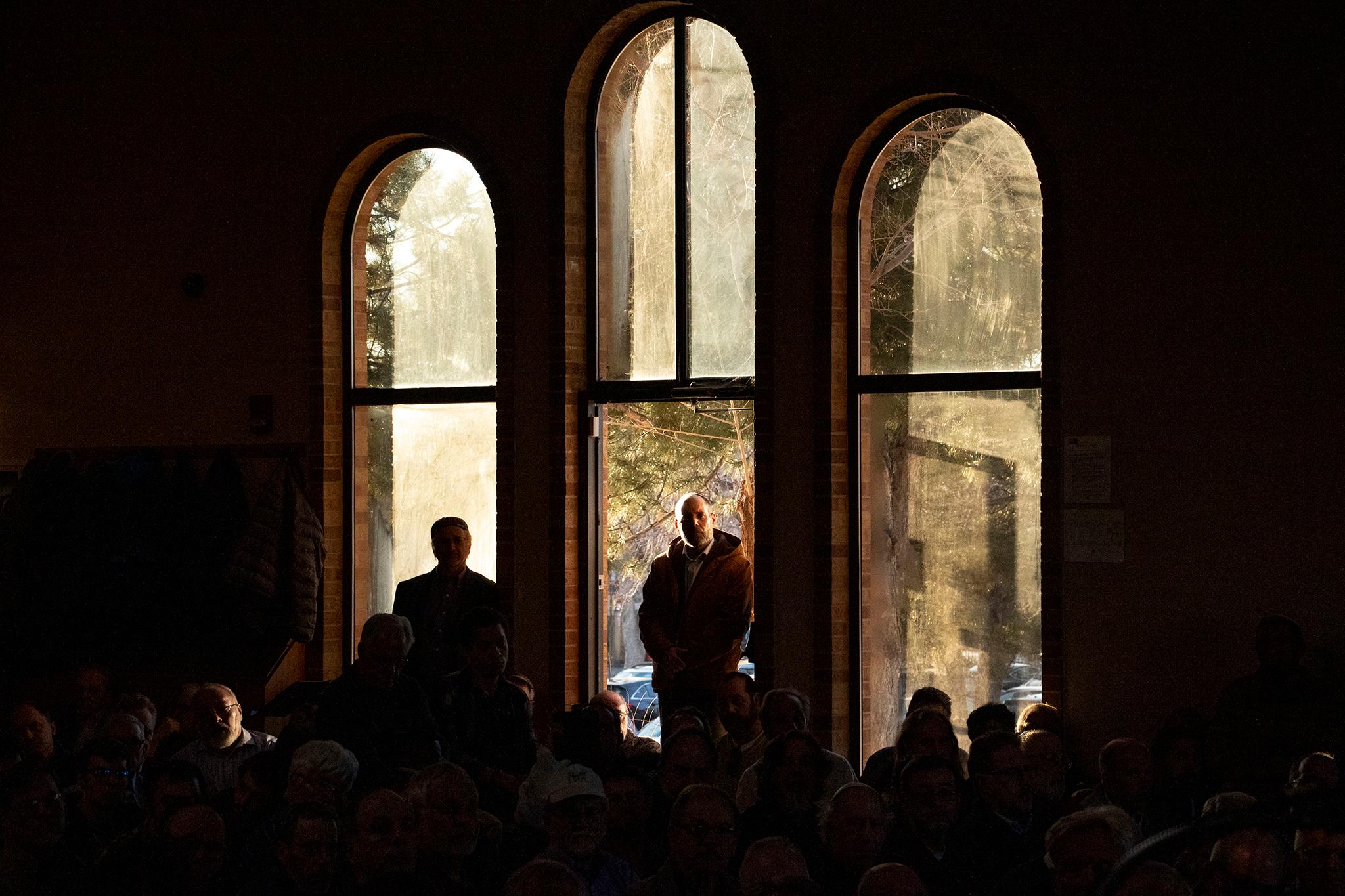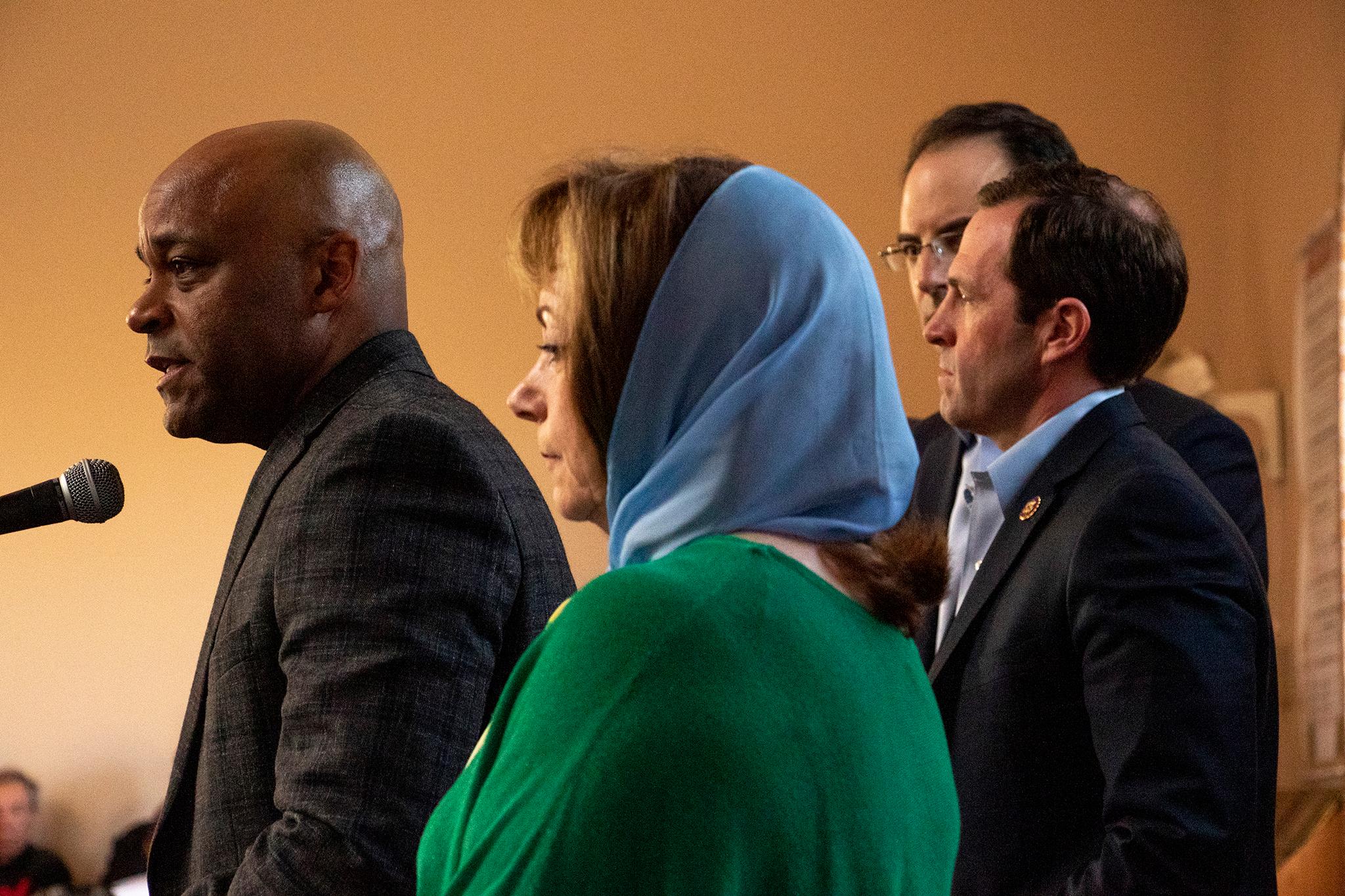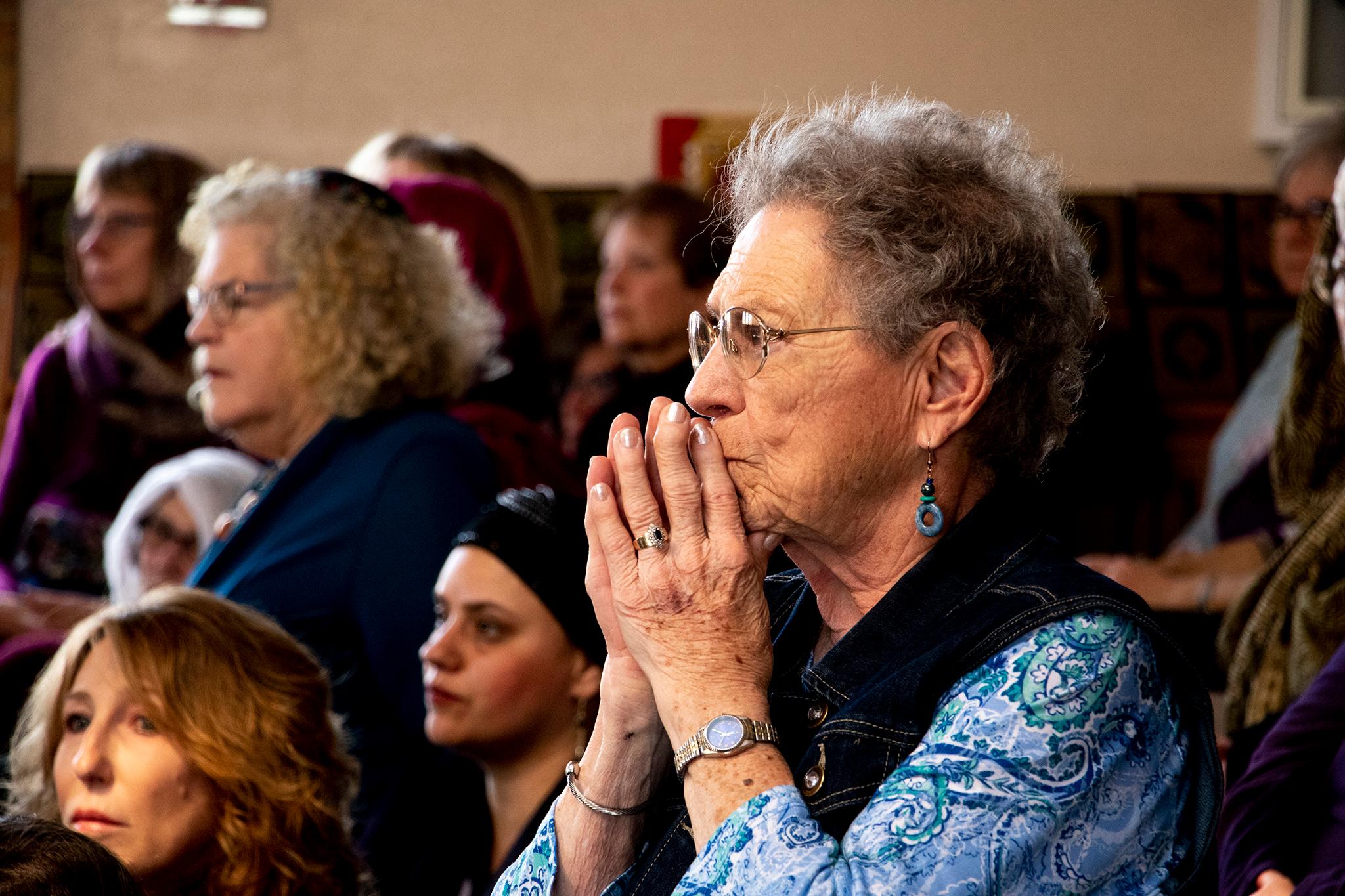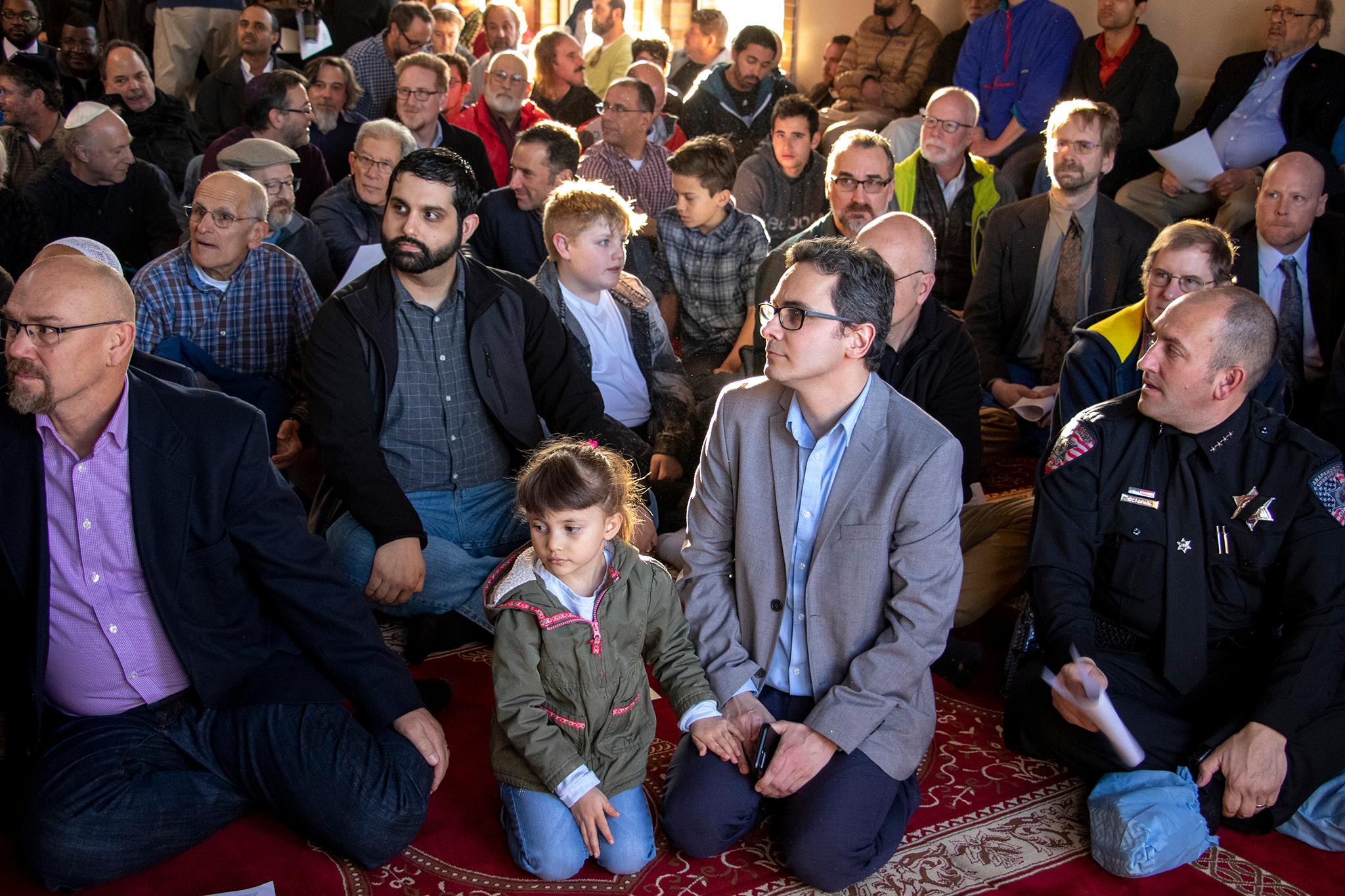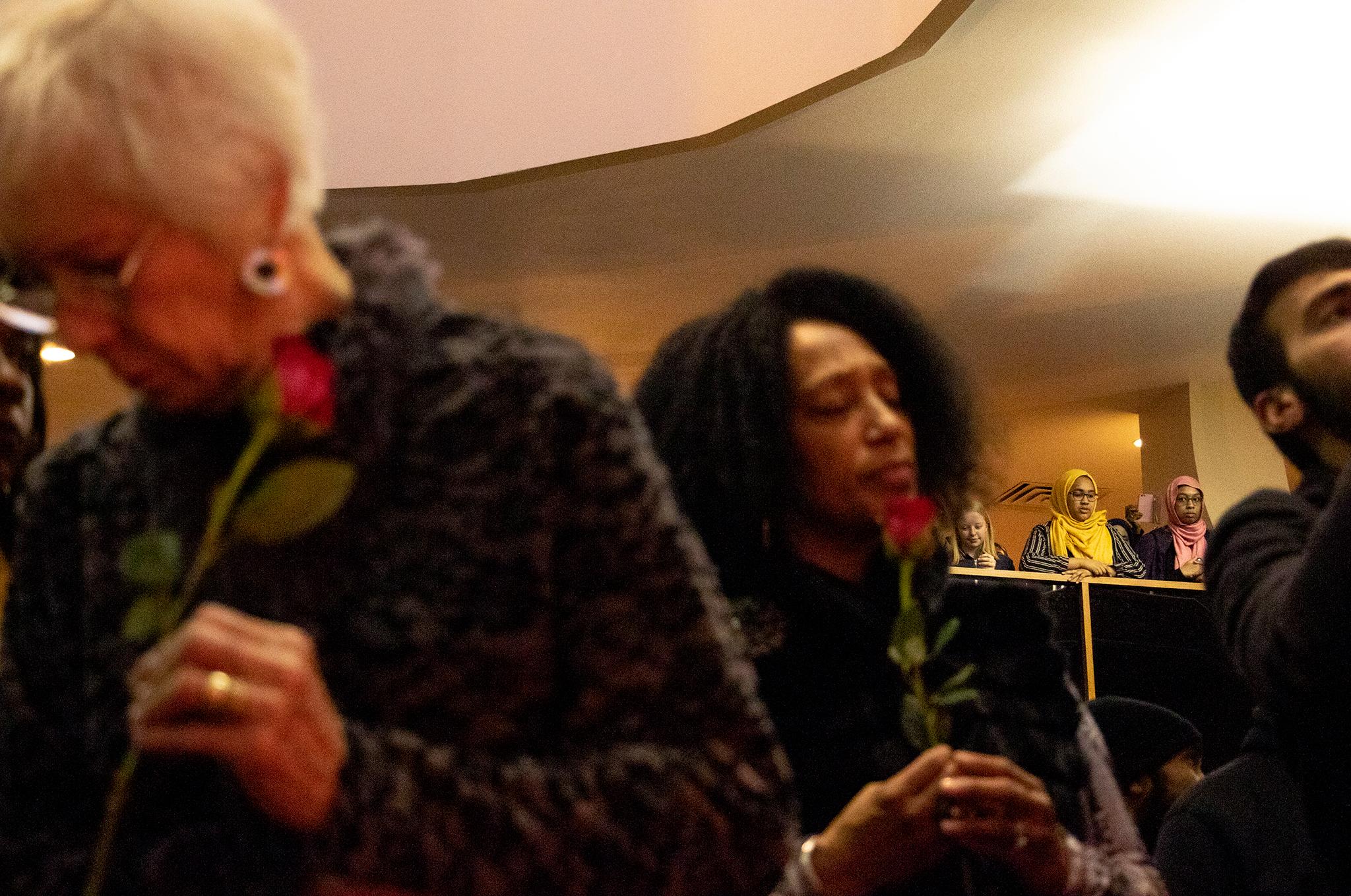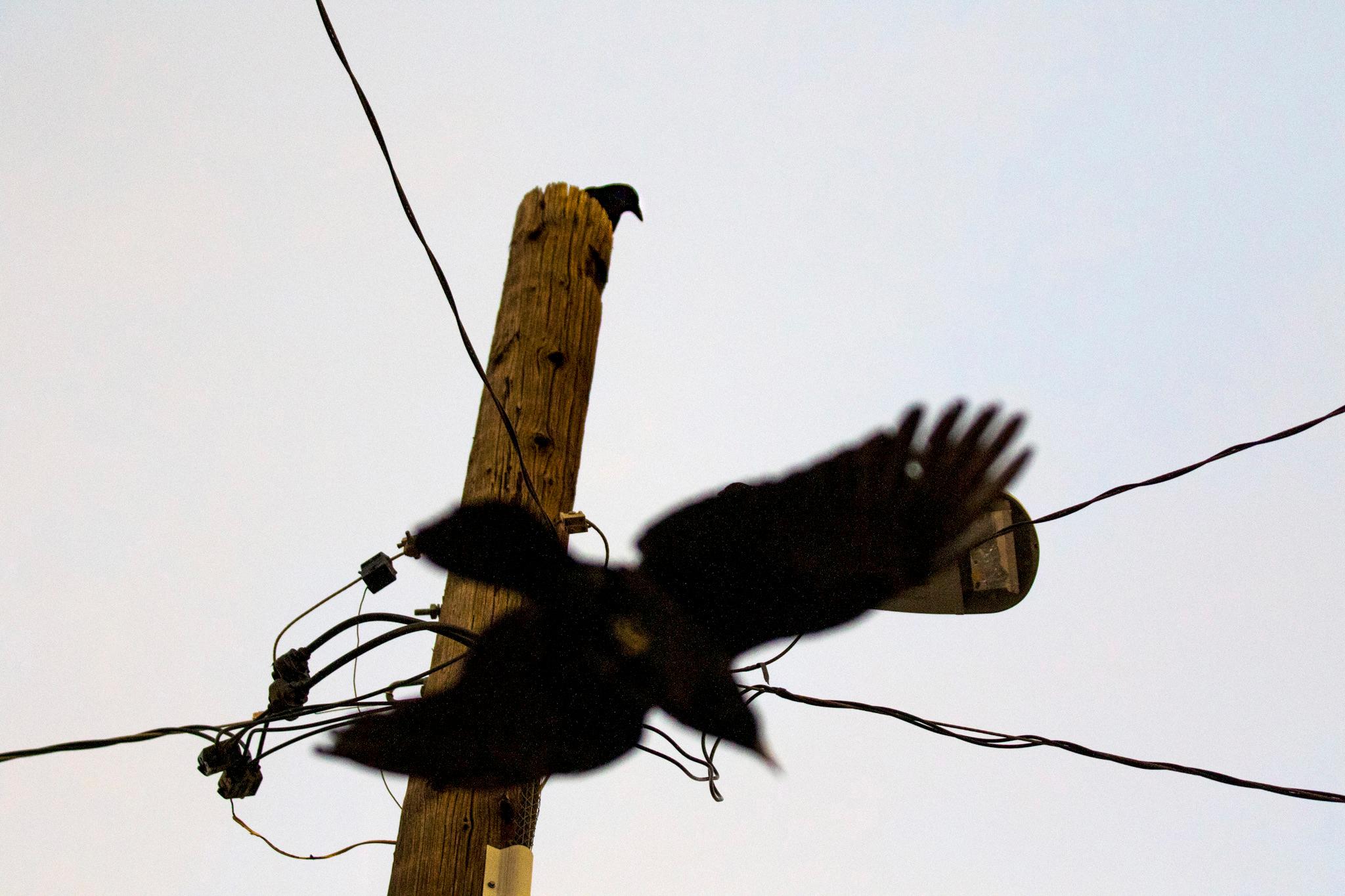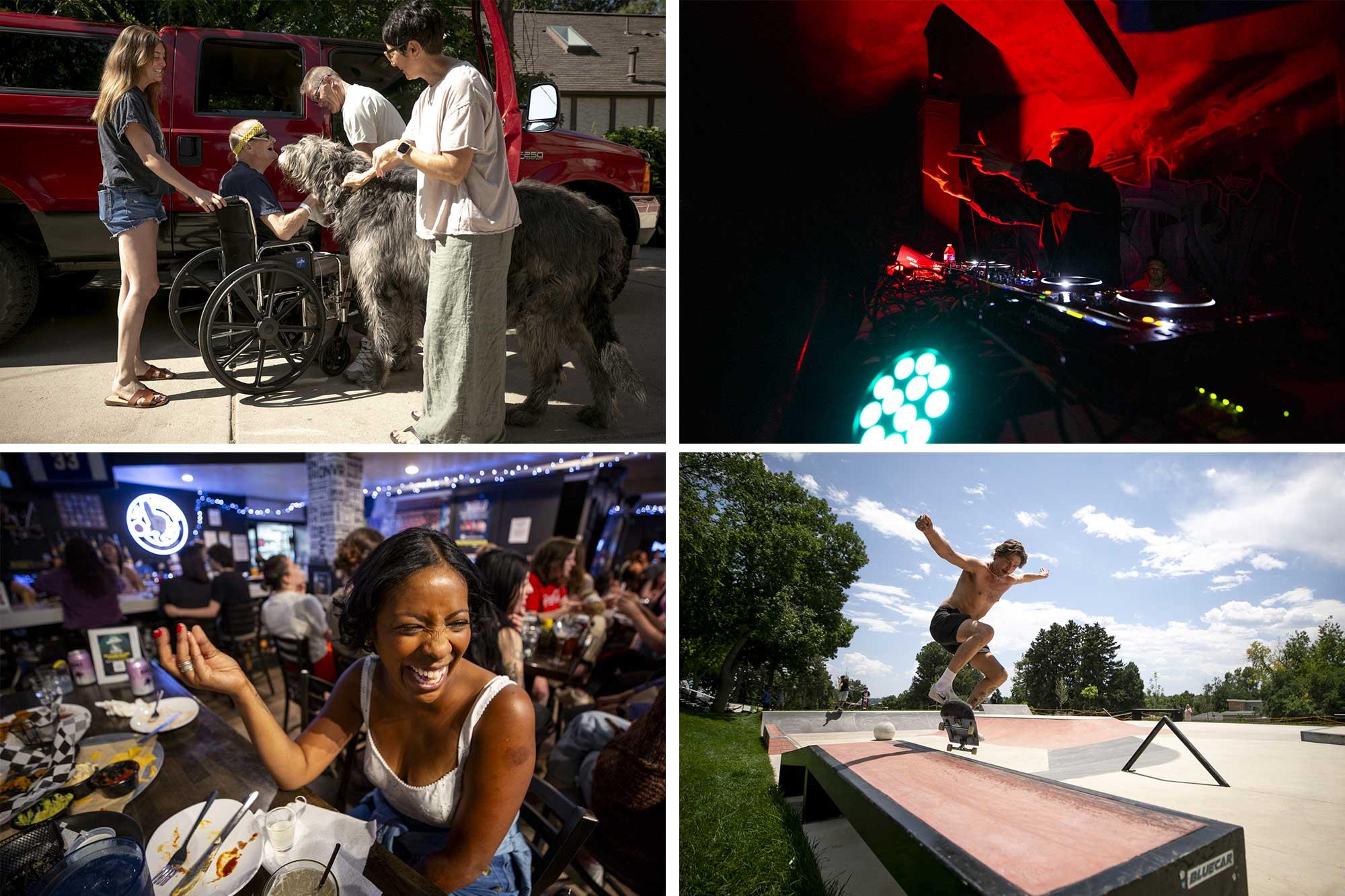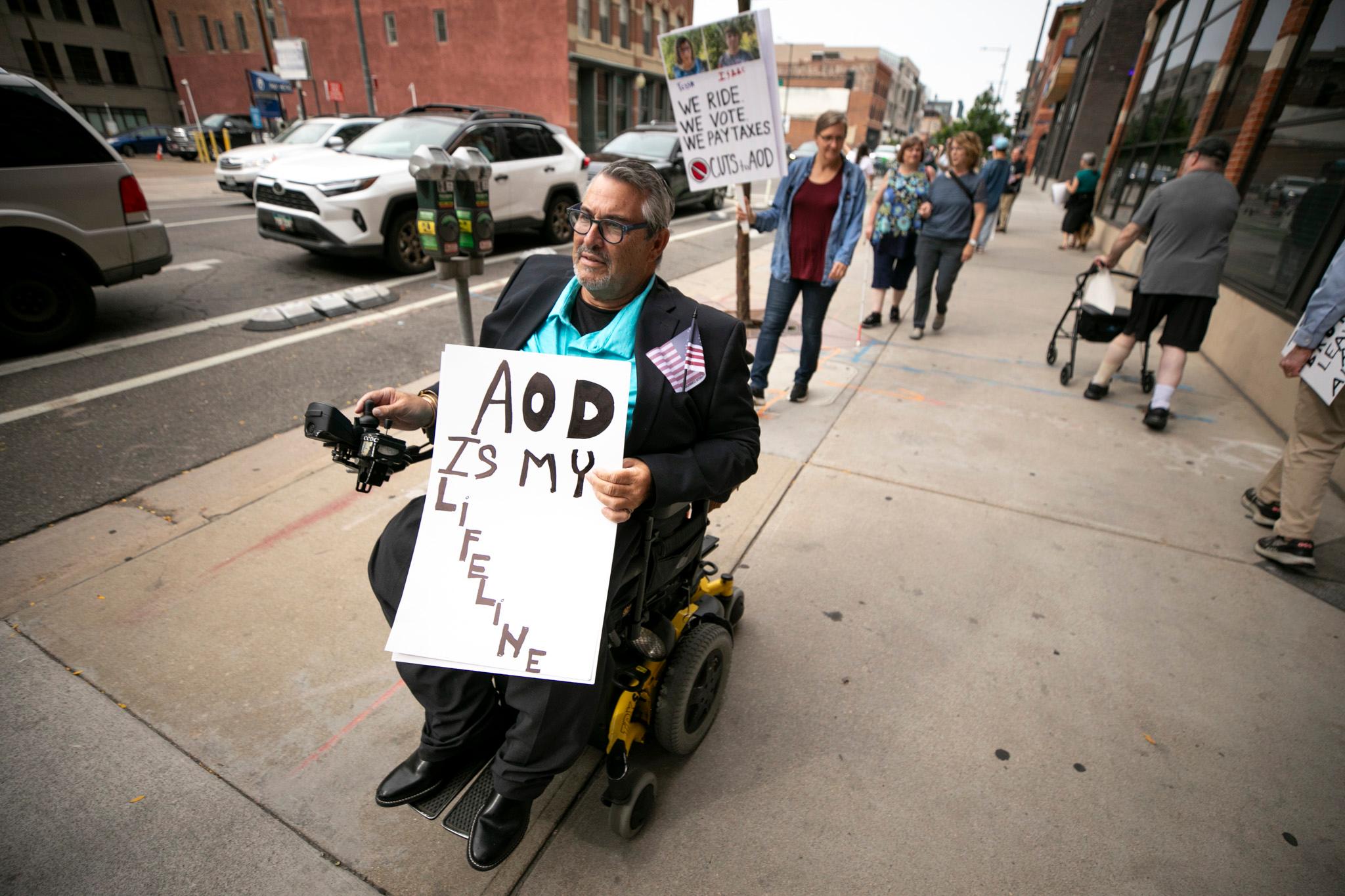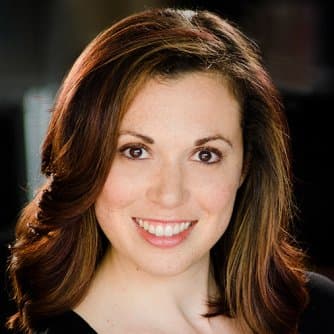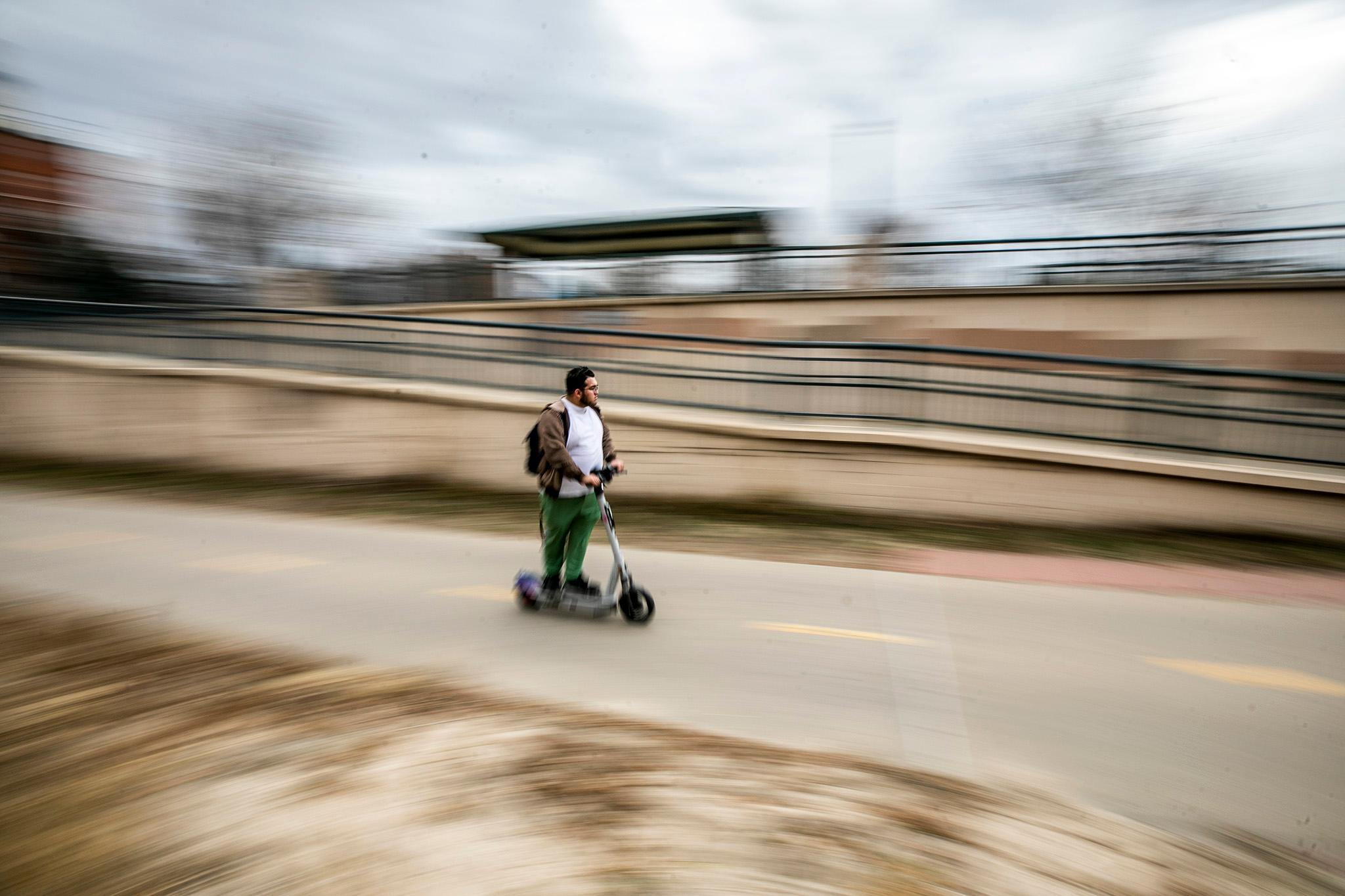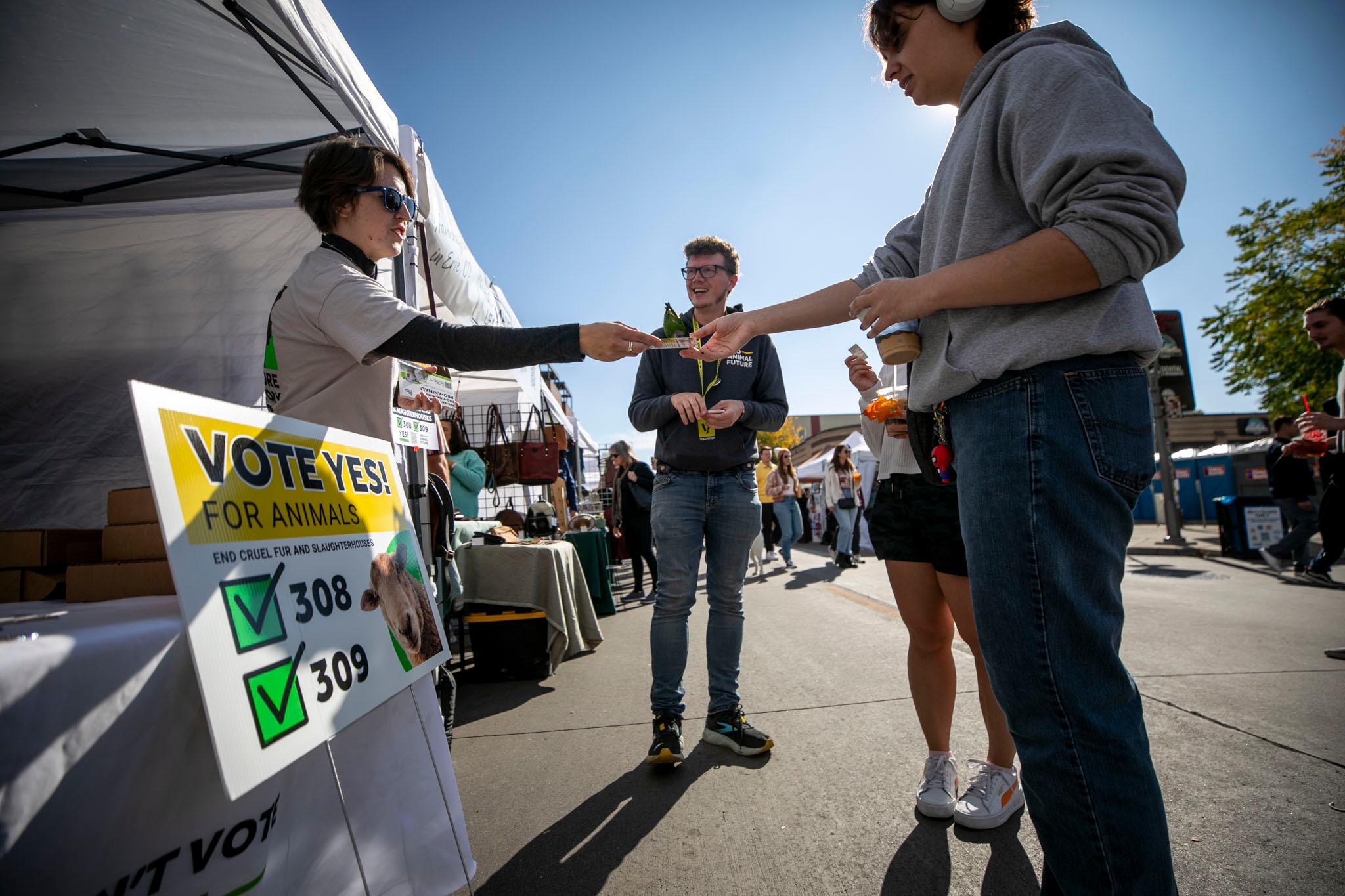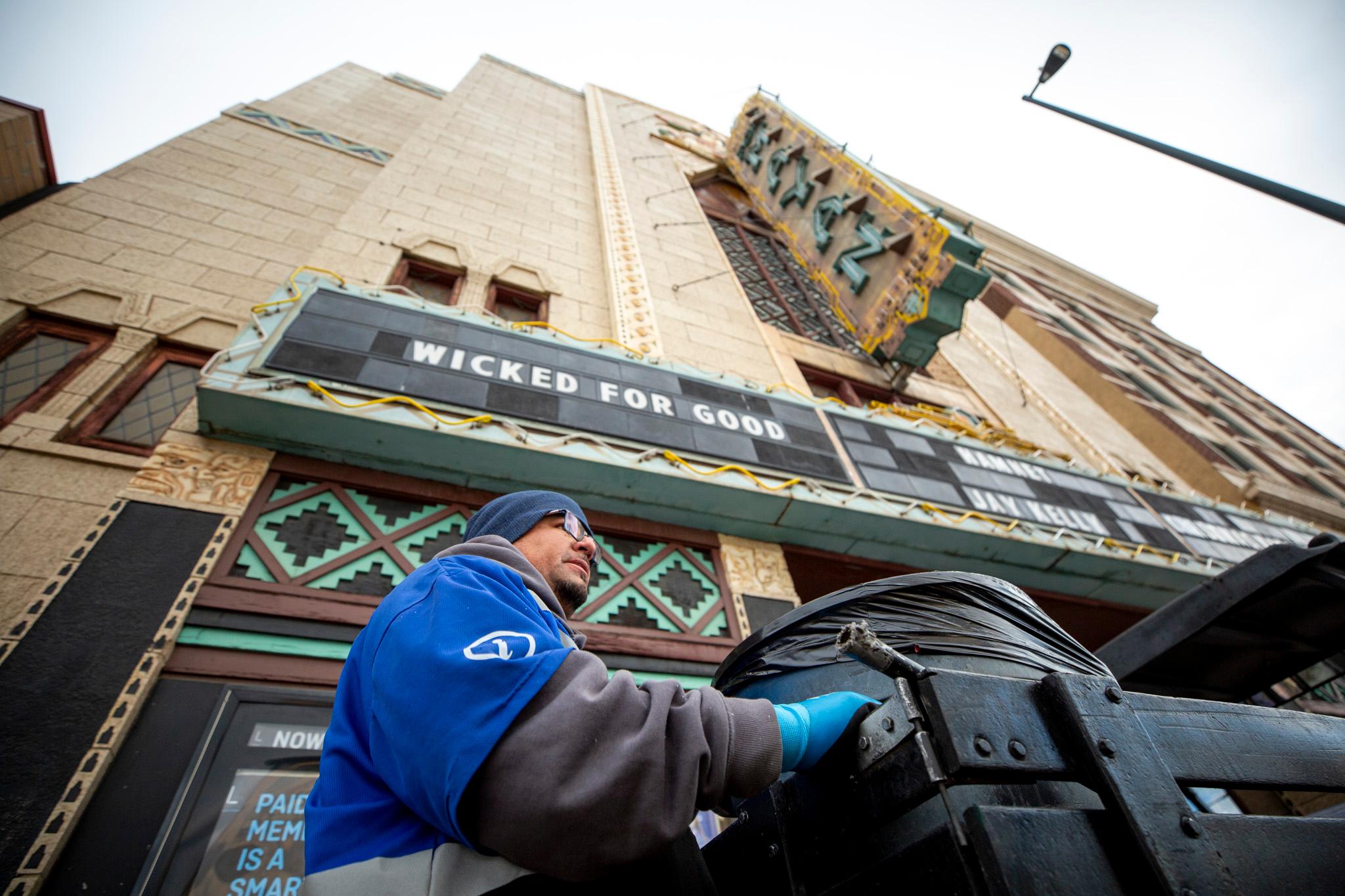Leaders of the Colorado Muslim Society, one of the state’s largest mosques, allowed firearms inside their house of worship for the first time in 50 years following Friday’s massacre in Christchurch, New Zealand, when they asked armed sheriff’s deputies to stand guard.
On Saturday, supporters of all faiths filled the sanctuary to mourn in solidarity with area Muslims, a repeat of a similar vigil held at Temple Emanuel following a similar tragedy in Pittsburgh last October.
Speaking to the crowd, Qusair Mohamedbhai, a civil rights lawyer and the Muslim Society’s attorney, held back tears as he recalled the difficult decision to allow guns inside the sacred space.
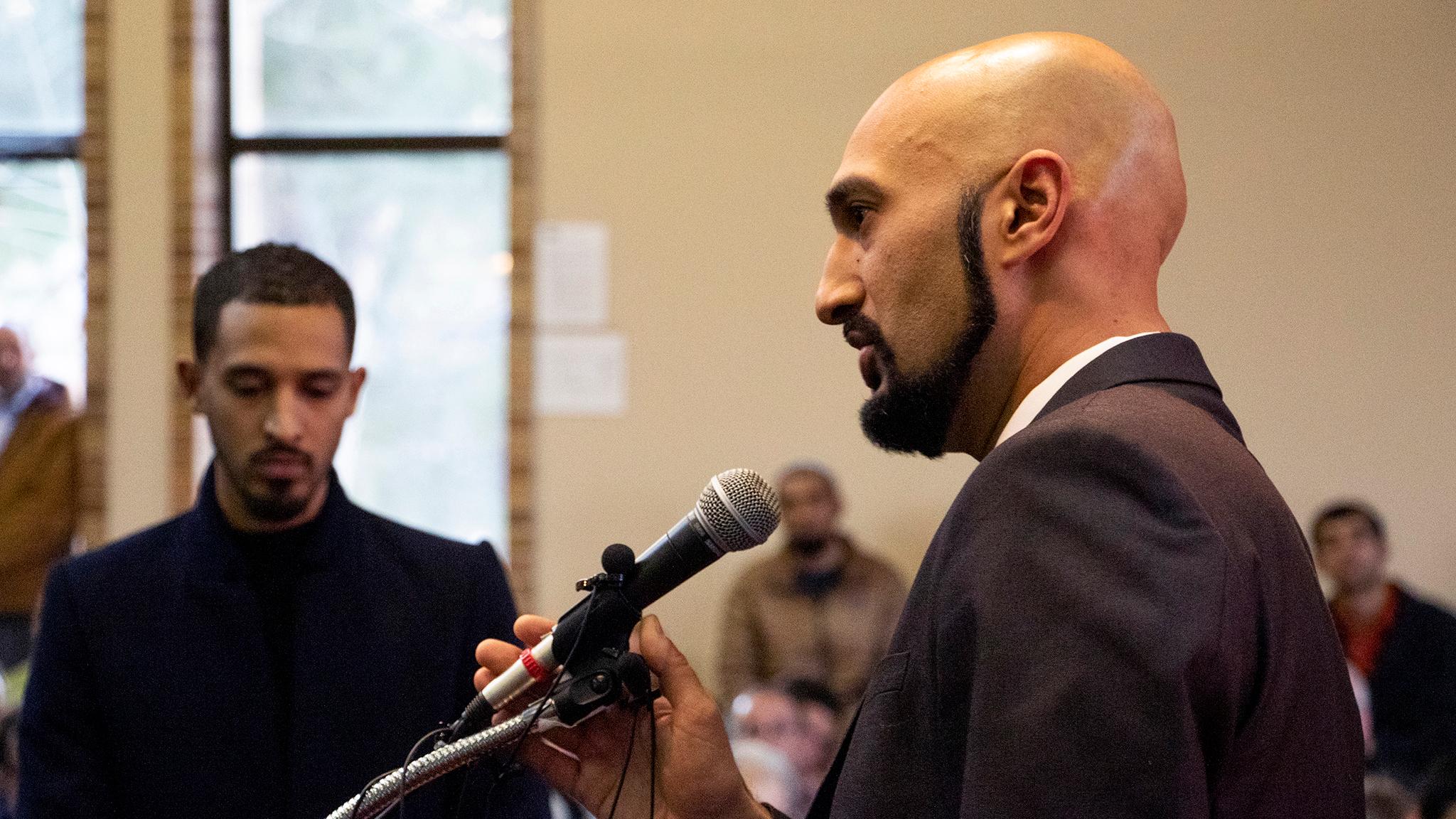
“We have never had firearms inside the mosque before,” he said.
Then, he turned to newly elected Arapahoe County Sheriff Tyler Brown who personally stood guard outside the mosque for several hours on Friday: “Your people were just unbelievable in making us feel safe in our own house of worship, and we thank you so much.”
Now, Mohamedbhai said, he and Muslim Society leadership will have to seriously re-evaluate their own security going forward.
Late Thursday night, reports emerged that a gunman had entered the Masjid Al Noor Mosque in Christchurch. By Saturday, CNN reported, 50 people were dead and another 50 were wounded. The gunman live-streamed his attack, and had posted a manifesto online that made clear his white supremacist motives.
Even though the attack took place on another continent, Mohamedbhai told Denverite that he “connected the dots” and felt strongly the Muslim Society needed fortification. He knows statistics have shown that reported hate crimes have increased in recent years and that “copycat” shootings can occur after a major event is covered so closely in the media.
“This is no longer a hypothetical harm,” he said. It was time to act.
Mohamedbhai had never met Brown before finding the sheriff already outside the mosque Friday morning, but he said he immediately felt reassured.
“It wasn’t just his words, you could see the concern in the man,” he said. “There is a new sheriff in town.”
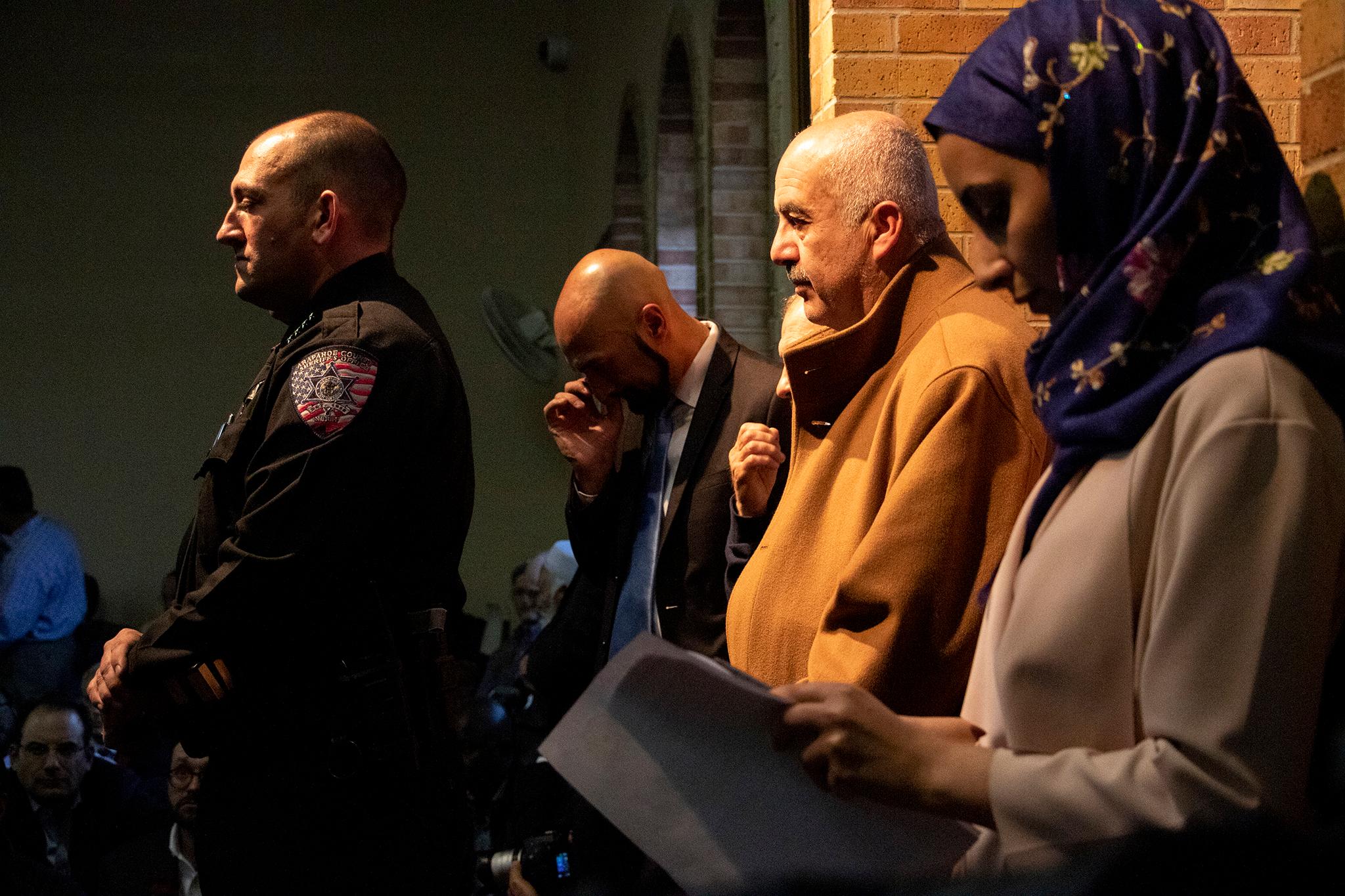
And while Mohamedbhai emphasized police presence is only a temporary solution, he said he and other decision-makers at the Society will be considering new security measures that they never dreamed they might invoke. He said it’s possible they might choose to arm their own private security, though they’re far from any decision.
“None of these are good choices,” he said. But, now, “we’re there … this is new territory.”
Fear that an attack could come to his mosque means leadership has an “obligation” to take action.
Mohamedbhai said their existing security force already takes up most of their operating budget, although “most of our problems are people parking in the wrong places.”
Gazala Hays, a mother of two adult sons who lives in Castle Rock, said she’s feared just this sort of an attack for some time. She recalled expressing this to Attorney General Phil Weiser when he was on the campaign trail a year or so ago.
“I’m a Muslim, and I am very worried for my children,” she said to him at the time. That fear has not subsided, especially as attacks like those in Pittsburgh, Quebec and, now, New Zealand continue to stoke her concerns.
“When something happens, it hits you really badly,” she said. “It’s always a shock.”
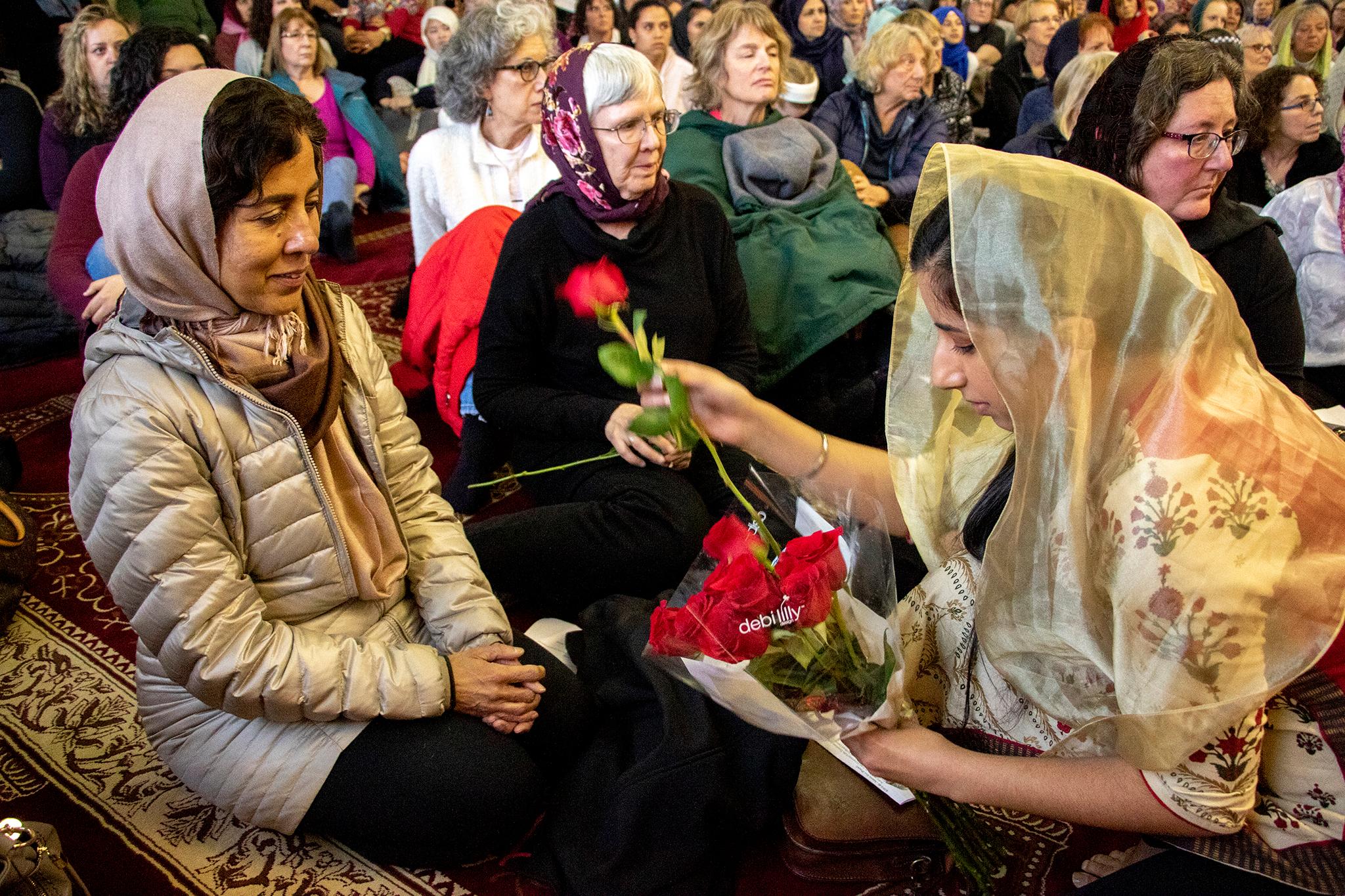
Hays, who usually attends worship services in the Tech Center, said she understands why Mohamedbhai might be thinking about armed guards right now, but added that would be a problematic solution.
“I’m not against having armed guards. I realize that we may have to do that,” she said, “but I hope it doesn’t come to that.”
For one, she’s against concealed carry permitting for firearms, “So why would I be for that?”
Additionally, the mosque is also a Sunday school, and she doesn’t like the idea of kids getting used to guns around them.
While she’s concerned Coloradans, Americans and religious people could become desensitized to attacks on sanctuaries around the world, she said she would also hate to see protective firearms in mosques or synagogues become the norm: “We shouldn’t get desensitized to that also.”
Mohamedbhai said he and his colleagues will be meeting with leadership from other local religious groups to discuss their next steps.
“We live in a really, really good place,” he said, but added something needs to be done to ensure the community’s safety. “This was a hard 24 hours for a lot of people.”
